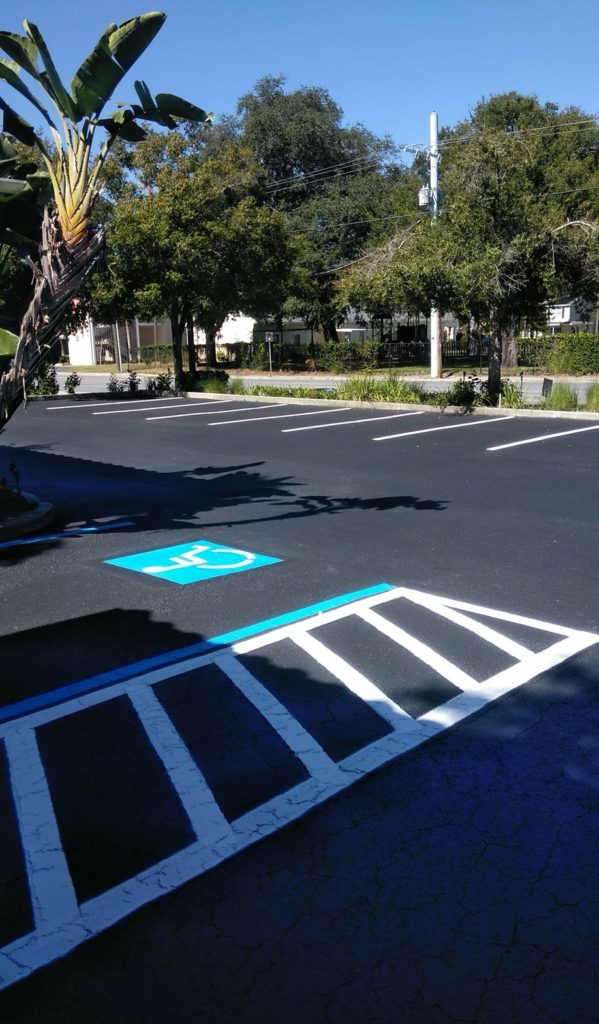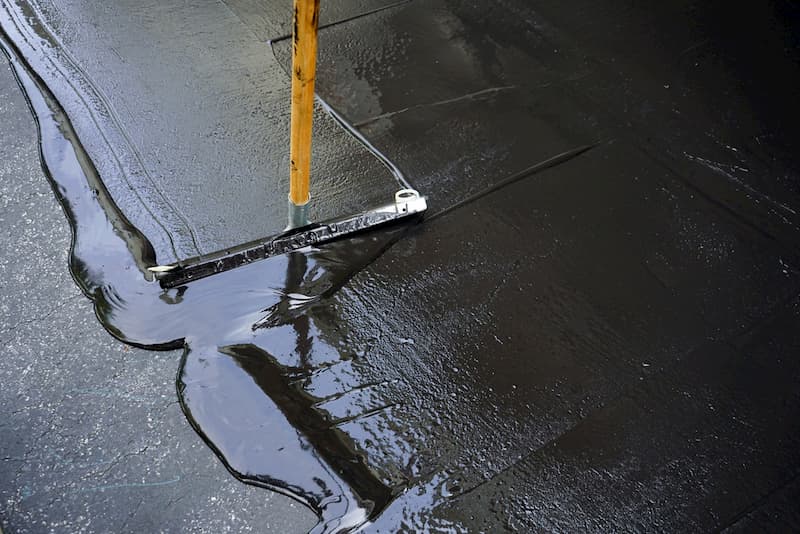Optimize Safety with Angle Parking Lot: Superior Asphalt Sealing
Optimize Safety with Angle Parking Lot: Superior Asphalt Sealing
Blog Article
Cold Mix Asphalt Vs. Hot Mix Asphalt: Which Is Right for You?

Structure Distinctions
Cold mix and warm mix asphalts differ substantially in their make-up, with distinctive qualities that affect their performance and applications. Cold mix asphalt is produced by emulsifying the asphalt binder with water and an emulsifying representative prior to blending it with aggregate. This technique enables the asphalt to be workable at lower temperatures, making it optimal for momentary fixings and for use in colder weather. Hot mix asphalt, on the various other hand, is produced at high temperatures, generally between 300-350 ° F, which helps to achieve far better compaction and a much more long lasting last product. The warm mix asphalt manufacturing procedure includes warming the aggregate and asphalt binder separately before incorporating them at the asphalt plant.
Additionally, cool mix asphalt tends to be much less dense and extra versatile than hot mix asphalt. This flexibility makes it better matched for locations with greater levels of movement, such as driveways or roadways with rush hour. In contrast, warm mix asphalt is recognized for its high resilience and resistance to rutting and fracturing, making it a favored choice for highways and high-traffic roadways where longevity is essential.
Installation Process Variances
The process of installing cool mix and warm mix asphalt exhibits noteworthy differences in their needs and procedures. In contrast, hot mix asphalt necessitates a more intricate setup procedure. Due to the home heating demands, warm mix asphalt installations are commonly carried out by professionals with customized equipment, ensuring a much more irreversible and structurally sound outcome.
Toughness and Longevity Factors
When considering asphalt options, sturdiness and durability are crucial variables to examine for enduring pavement efficiency. Hot mix asphalt (HMA) is known for its exceptional longevity and long life.
In terms of durability, HMA commonly outshines CMA because of its premium toughness and resistance homes. HMA pavements have a longer solution life, requiring less constant repair services and maintenance, which can convert to set you back savings over time. Additionally, HMA sidewalks are a lot more easily customizable to meet particular task needs, further enhancing their helpful site longevity.
Cost Considerations
Thinking about the economic implications is an important facet when evaluating the selection in between hot mix asphalt (HMA) and cold mix asphalt (CMA) for sidewalk tasks. While the first price of warm mix asphalt is usually greater than that of cool mix asphalt, HMA often provides a more affordable remedy in the future due to its premium resilience and long life. HMA is known for its ability to hold up against heavy traffic tons and harsh climate conditions, reducing the demand for regular repair navigate to this site services and maintenance. On the other hand, cool mix asphalt is more budget-friendly upfront yet may require more constant patching and resurfacing, bring about greater maintenance expenses in time.
In enhancement to material expenses, it's vital to take into consideration the expenditures associated with installation and upkeep when contrasting HMA and CMA. HMA usually calls for customized tools and skilled labor for correct installation, which can affect overall job costs. On the other hand, CMA is simpler to collaborate with and can commonly be used utilizing easier strategies, potentially lowering installation costs. Inevitably, the decision between HMA and CMA need to take into consideration not just the initial expense yet additionally the long-term financial ramifications to figure out the most cost-effective alternative for the particular pavement job.
Environmental Impact Contrast
Comparison of the ecological impacts between hot mix asphalt (HMA) and cool mix asphalt (CMA) exposes distinct differences in sustainability techniques. HMA manufacturing calls for high temperatures, leading to boosted power usage and greenhouse gas discharges.
In addition, the usage of CMA frequently includes recycling existing asphalt pavement, advertising source conservation and lowering the quantity of waste sent to land fills. By opting for CMA over HMA, road building tasks can add favorably to ecological conservation initiatives.
Verdict
To conclude, the selection between cold mix asphalt (CMA) and warm mix asphalt (HMA) depends on numerous factors such as composition, setup procedure, toughness, durability, price, and ecological effect. angle parking. While CMA provides a quick and affordable service for minor repair work, HMA makes sure premium resilience and long life for hefty web traffic locations. Consider these aspects thoroughly to identify which kind of asphalt is the appropriate choice for your paving requires

Thinking about the monetary ramifications is a vital aspect when examining the choice between hot mix asphalt (HMA) and chilly mix asphalt (CMA) for sidewalk tasks. While the preliminary expense of hot mix asphalt is normally greater than that of cold mix asphalt, HMA frequently gives a much Extra resources more affordable remedy in the lengthy run due to its remarkable resilience and longevity. angle parking.Comparison of the ecological impacts in between hot mix asphalt (HMA) and chilly mix asphalt (CMA) reveals distinctive distinctions in sustainability practices.In verdict, the choice between chilly mix asphalt (CMA) and hot mix asphalt (HMA) depends on different aspects such as make-up, setup process, sturdiness, longevity, cost, and environmental effect
Report this page